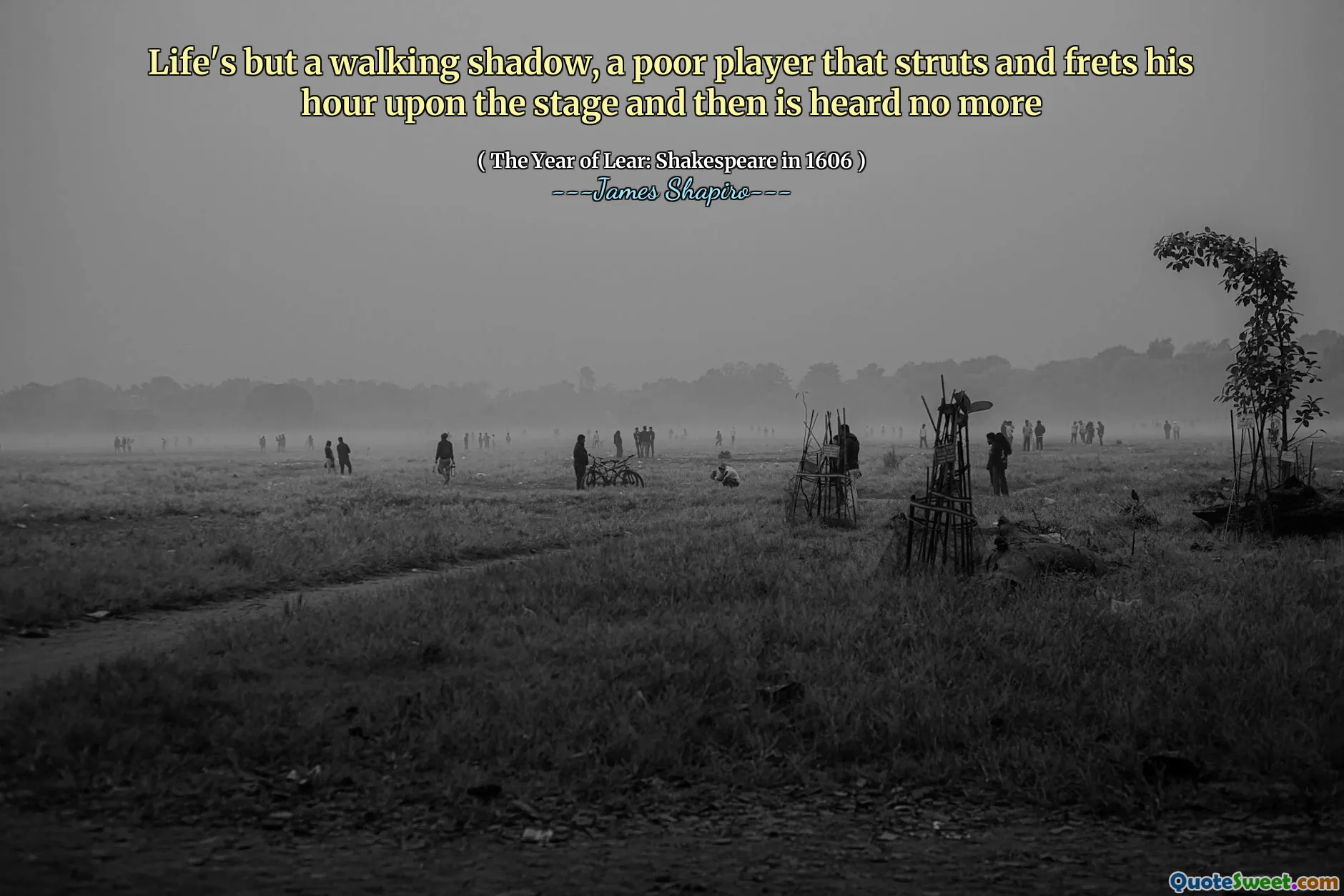
Life's but a walking shadow, a poor player that struts and frets his hour upon the stage and then is heard no more
In "The Year of Lear: Shakespeare in 1606," author James Shapiro delves into the life and works of William Shakespeare during a pivotal year. He explores the impact of personal and political turmoil on Shakespeare's writing, particularly emphasizing how the playwright's experiences influenced his creation of tragic characters and themes. The narrative harmonizes historical context with literary analysis, revealing how events of the time shaped Shakespeare's artistry.
The quote, "Life's but a walking shadow, a poor player that struts and frets his hour upon the stage and then is heard no more," encapsulates the ephemeral nature of life and human existence. It suggests that life is fleeting and often filled with anxiety and pretense, hinting at deeper philosophical themes regarding mortality and legacy. Shapiro uses this quote to illustrate how Shakespeare grappled with these profound ideas, crafting works that resonate with audiences across ages.











